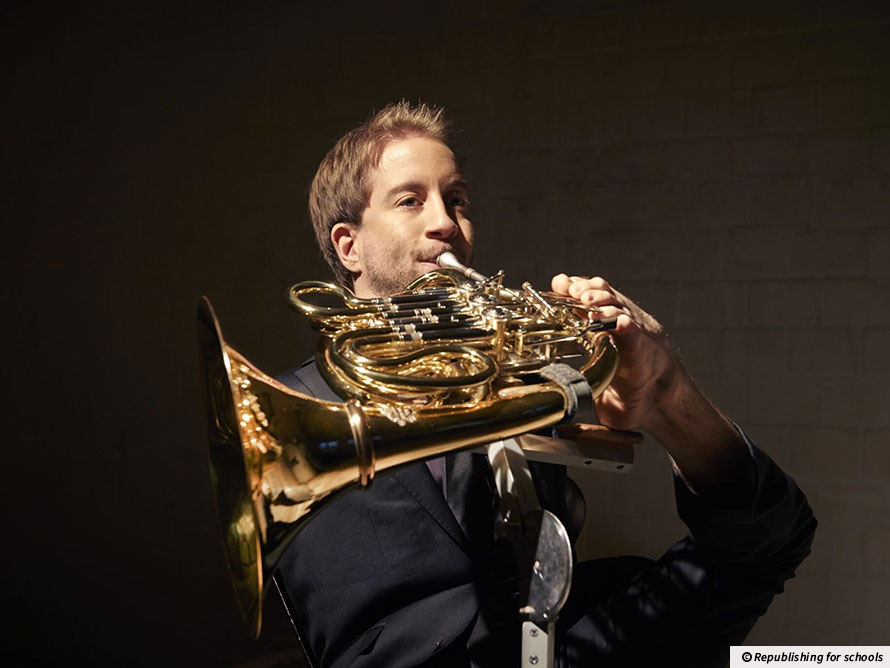Do we give up too easily? French horn player Felix Klieser overcame great adversity to become a master of his instrument. Some think problem-solving is the greatest skill of all.
The virtuoso musician who plays with his toes
 Determined: Klieser was only four years old when he told his parents he would be a horn player.
Determined: Klieser was only four years old when he told his parents he would be a horn player. Glossary
Virtuoso - Somebody who is highly skilled in music, or another form of art.
Royal Albert Hall - A concert hall in London, opened in 1871 and named by Queen Victoria in memory of her husband Prince Albert.
French horn - A circular brass instrument with a large opening at the end. When uncoiled, the horn is a piece of metal around four metres long.
Mozart - An 18th Century classical musician who composed more than 800 works.
OECD - The Organisation for Economic Co-operation and Development.
CERN - The European Organisation for Nuclear Research is the scientific body in charge of the Large Hadron Collider.
Shakespeare - An English playwright and poet who is often called the greatest writer in the English language.
